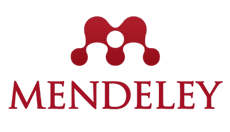Koagulasi Nilai: Pemikiran Membangun Budaya Mutu Madrasah (Suatu Ikhtiar Epistemologis Memajukan Lembaga Pendidikan Islam)
DOI:
https://doi.org/10.57176/jn.v3i1.82Keywords:
budaya mutu, ikhtiar epistimologis, koagulasi nilai, madrasahAbstract
Madrasah sebagai salah satu representasi lembaga pendidikan Islam di Indonesia seringkali masih dipandang sebagai lembaga pendidikan kelas dua. Menyadari hal itu rupanya madrasah-madrasah pun berbenah dan telah menunjukkan hasilnya pada dasawarsa terakhir ini. Ada Madrasah Aliyah Insan Cendekia Serpong, MBI Amanatul Ummah Mojokerto, MAN 2 Malang, Lembaga Qoryah Toyyibah Salatiga, MIN 1 Malang, lembaga pendidikan Al-Azhar dan masih banyak lagi madrasah ibtidaiyah, tsanawiyah, maupun Aliyah yang mampu eksis hingga berprestasi mengungguli lembaga pendidikan kelas satu di berbagai even tingkat nasional bahkan internasional. Ini sungguh menggembirakan, kendati upaya memajukan lembaga masih terlihat parsial namun dari situ ada harapan besar bahwa di masa depan madrasah diyakini akan mampu sejajar bahkan menggeser posisinya menjadi lembaga pendidikan kelas satu. Penelitian ini menggunakan metode kualitatif dengan pendekatan deskriptif bertujuan untuk menggali budaya mutu terbaik madrasah. Dalam penelitian ini ditemukan bahwa bentuk aktifasi ruhani adalah kunci bagi terjadinya proses ‘Koagulasi Nilai’, dan inilah yang akan mampu menghantarkan terbangunnya budaya mutu paripurna madrasah sebagai induk yang akan melahirkan mutu paripurna madrasah di masa depan.
-------------------------------------------------------------------------------------------------------------------------------------------------------------------------------------
As one of Islamic education institution representations, madrasah (Islamic school) is regarded a second-class education institution in Indonesia. Some madrasah had, then, been encouraged to improve and the results was apparent hitherto this decade. The examples included Madrasah Aliyah Insan Cendekia Serpong, MBI Amanatul Ummah Mojokerto, MAN 2 Malang, Lembaga Qoryah Toyyibah Salatiga, MIN 1 Malang, Al-Azhar education institution and many other madrasah from elementary to secondary levels which had achieved better that the first class education institutions at national and international levels. Even though the improvements so far seem to be partial, this positive improvement created a great expectation that in the future madrasah would be able to reach equal position or even become the first-class institution. This research employed descriptive qualitative approach to study the best quality culture in madrasah. This study found that spiritual activation was the key for ‘coagulation of value’ process. Thus, this process could lead to a perfect quality culture of madrasah as the basis for a perfect quality of madrasah in the future.
References
Arfiansyah, R. (2020). Implementasi Perilaku Kerja Berdasarkan Nilai Budaya Kerja (NBK) Di Kementerian Agama Republik Indonesia Berbasis Modifikasi Theory of Planned Behaviour. Yogyakarta: UII Yogyakarta.
Ibrahim. (1995). Teknologi Emansipasi dan Transendensi. Bandung: Mizan.
Kemendiknas. (2009). Peraturan Menteri Pendidikan Nasional nomor 63 tahun 2009 tentang Sistem Penjaminan Mutu. Jakarta: Kemendiknas.
Kuntowijoyo. (2018). Identitas Politik umat Islam. Yogyakarta: IRCiSoD .
Mulyadi. (2010). Kepemimpinan Kepala Sekolah Dalam mengembangkan Budaya Mutu. Malang: UIN Malang press.
Nahadi, M., Sarimaya, F., & Rosdiyanti, S. (2011). Hubungan Islam dengan Ilmu Pengetahuan Alam dalam Perspektif Sejarah. Jurnal Atikan, 1(1).
Permatasari, T., & Apriliani, E. (2013). Optimasi penggunaan koagulan dalam proses penjernihan air. Jurnal Sains dan Seni ITS, 2(1), A6-A11.
Soemodimedjo, P., & Poedjiadi, A. (2000). Kimia: Dari Zaman ke Zaman. Bandung: Yayasan Cendrawasih.
Sriyanto. (2021). Tujuh Ilmuwan Muslim Perintis Laboratorium Modern. Integrated Lab Journal.
Tika, P. (2010). Budaya Organisasi dan Peningkatan Kinerja Perusahaan. Jakarta: Bumi Aksara.
Trianto. (2010). Model Pembelajaran Terpadu : Konsep, Strategi, dan Implementasinya dalam Kurikulum Tingkat Satuan Pendidikan (KTSP). Jakarta: Bumi Aksara.
West, B. (2009). Managing Quality in Schools Effective Strategies for Quality-Based School Improvement. London: Prentice Hall.
Downloads
Published
How to Cite
Issue
Section
License
Copyright (c) 2023 Mohamad Arif Majid

This work is licensed under a Creative Commons Attribution-ShareAlike 4.0 International License.
You are free to:
- Share — copy and redistribute the material in any medium or format for any purpose, even commercially.
- Adapt — remix, transform, and build upon the material for any purpose, even commercially.
- The licensor cannot revoke these freedoms as long as you follow the license terms.
Under the following terms:
- Attribution — You must give appropriate credit , provide a link to the license, and indicate if changes were made . You may do so in any reasonable manner, but not in any way that suggests the licensor endorses you or your use.
- ShareAlike — If you remix, transform, or build upon the material, you must distribute your contributions under the same license as the original.
- No additional restrictions — You may not apply legal terms or technological measures that legally restrict others from doing anything the license permits.
Notices:
You do not have to comply with the license for elements of the material in the public domain or where your use is permitted by an applicable exception or limitation .
No warranties are given. The license may not give you all of the permissions necessary for your intended use. For example, other rights such as publicity, privacy, or moral rights may limit how you use the material.
















